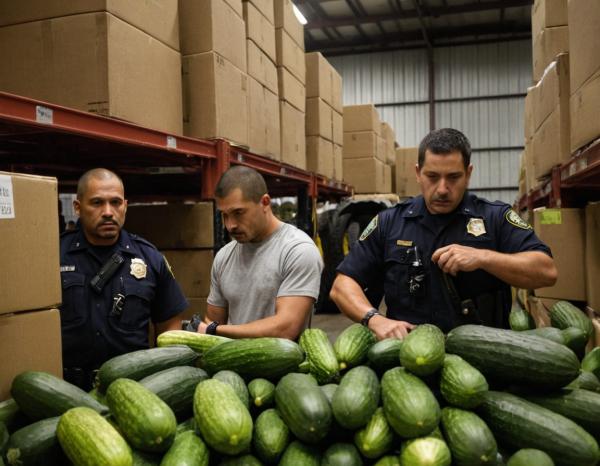700 pounds of meth in cucumbers: Feds say fruits, veggies are cover

Why That's Methed Up:
Oh boy, where do I even start? So, there's this genius duo down in Georgia who thought it would be a brilliant idea to stuff 700 pounds of meth inside cucumbers. Yeah, you heard that right. Cucumbers. Because nothing says "I'm not hiding drugs" like packing them into veggies. Andres Jasso Jr. and Rufino Pineda-Perez were busted in Gainesville, Georgia, with their tractor-trailer full of cucumber-packed cardboard boxes. But here's the kicker - inside those boxes, hidden among the folded cardboard, were four packets of drugs. I mean, who even thinks of this stuff? They must have been watching too many episodes of "Chopped" and got a little confused. Now, why cucumbers? Well, according to some expert guy named Mike LaSusa, smugglers love using produce because it's hard for customs to inspect everything properly. Plus, produce spoils quickly, so they have to rush the inspections. It's like trying to find a needle in a haystack while the hay is on fire. But hey, at least these guys are creative, right? Pineda-Perez, by the way, is no stranger to the game. He's been deported twice before for transporting drugs. You'd think he'd learn his lesson, but nooo, he had to come back for round three. And Jasso? Well, he's from Brookhaven, Georgia, so maybe they should start calling it "Brookvegan" instead. So there you have it, folks. Another thrilling episode of "ThatsMethedUp.com". Stay tuned for more ridiculous drug-related shenanigans because, let's face it, these guys never fail to entertain us with their idiocy.
Comments
Comments (2)